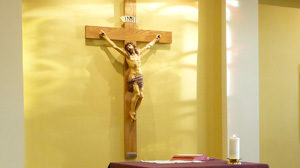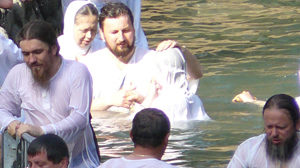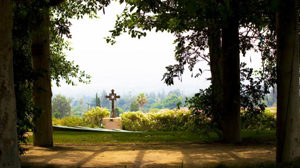Reflection:
How long will you grieve for Saul whom I have rejected as King of Israel? 1 Samuel 16:1
I was in sixth grade when I discovered that I needed eye glasses. Those were the days when frames were fragile and lenses were breakable. Eye glasses were expensive. My parents were so poor that every costly purchase they made had to be paid in installments.
About nine months after I got my eye glasses, I lost them. We looked high and low for them, and my parents told me that they could not afford another pair of glasses. I was devastated and for a week I prayed, I cried, I blamed my brothers and sisters for hiding them from me, I begged my parents to get me another pair of glasses. Nothing worked. It occurred to me that God was not about to come down and give me another pair of glasses. I needed to take responsibility for misplacing them and I needed review my actions and try to find them myself. Once I stood back, reflected upon my days prior to losing them, eliminate the places where I could have left them, I finally found them in a place that I had put them, so hidden and protected, because I didn’t want them to break. I learned a valuable lesson that day. I needed to go beyond complaining, blaming and grieving, and take responsibility for my actions.
The prophet Samuel, of today’s first reading, had to learn a similar lesson. He didn’t want to admit that Saul, the king he had anointed, needed to be replaced. We have a tendency to cry over spilled milk and not get on with our lives. Finally, God has to tell him, “How long will you grieve for Saul, whom I have rejected as king of Israel? Fill your horn with oil and be on your way.”
No matter how many times God has repaid us with a better life, a better future, a better choice, we still want to cling to our past, with those things that do not please God. As it says in this first reading: “Not as man sees does God see.” It is so difficult to let go and let God!
These readings invite me to acknowledge a fundamental truth of life and faith: God’s Will is more loving, merciful, generous, grace-filled than my own will. When it comes to our life and our future, we are powerless. To acknowledge our powerlessness before God is the first step toward receiving the graces we need to overcome whatever mess we have placed ourselves into with our pride, our bad decisions and our grieving.
May the Father of our Lord Jesus Christ enlighten the eyes of our hearts, that we may know wat is the hope that belongs to our call. Ephesians 1:17 (Alleluia verse).
Fr. Clemente Barrón, C.P. is a member of Christ the King Community in Citrus Heights, California.








